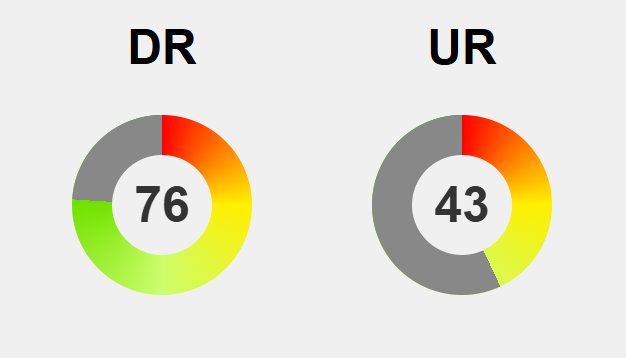Navigating legal support for a small business in Ontario raises a crucial question: should you hire a business lawyer or a licensed paralegal to save money and get effective help? While both are regulated by the Law Society of Ontario, their roles, expertise, and scope differ dramatically. Lawyers offer comprehensive, high-stakes legal services—drafting complex contracts, advising on corporate structures, and handling disputes—often at a premium cost. Paralegals, by contrast, focus on straightforward, routine issues like landlord-tenant disputes or small claims, providing quick and affordable solutions. Understanding these contrasting roles can help you make smarter decisions—saving money without sacrificing essential support. But with so many factors at play—cost, complexity, and scope—how can you be sure you’re choosing the right professional? This guide reveals the strengths, limitations, and practical strategies for aligning your legal needs with the right expertise, ultimately safeguarding your business’s future while keeping costs in check.
Navigate the Legal Landscape: Choosing Between Business Lawyers and Paralegals in Ontario
Navigating legal support for a small business in Ontario isn’t always straightforward, and choosing the right professional can make a big difference. Many business owners face the question of whether to hire a lawyer or a licensed paralegal, and that choice hinges on understanding their distinct roles. While both are regulated by the Law Society of Ontario, their training, expertise, and scope of services vary significantly.
Lawyers bring extensive education and experience, handling complex legal issues with broad expertise. They’re equipped to draft detailed contracts, advise on corporate structures, and manage disputes that involve high stakes or intricate legal matters. Their comprehensive support can provide peace of mind, especially in situations that require strategic legal guidance or court representation.
Paralegals, however, focus on specific, routine legal tasks. They are well-suited for straightforward issues such as landlord-tenant disputes, small claims, or provincial offences. Their targeted scope allows them to deliver quick, cost-effective assistance, making legal help more accessible for small businesses on a budget.
Understanding these differences is crucial. Making the right choice isn’t just about saving money—it’s about aligning your legal needs with the right level of expertise. Choosing a lawyer for simple matters might be unnecessary, while relying solely on a paralegal for complex issues could leave gaps in protection.
This decision impacts your business’s legal wellbeing and your financial health. By grasping the unique strengths of each professional, you can ensure you get effective, appropriate support without overspending. The right support now can save you time, money, and headaches down the road.
Legal Professionals in Ontario: Understanding Roles and Services
Legal professionals in Ontario, mainly lawyers and paralegals, serve as vital guides through the often complex legal landscape. Lawyers typically hold a university law degree, complete a year of articling—an intensive, on-the-job training—and pass licensing exams. This rigorous process prepares them to handle a wide array of legal issues, from drafting detailed contracts to advising on corporate structures or representing clients in court. Their extensive training makes them well-equipped for high-stakes or complicated legal matters that demand comprehensive support.
Paralegals, by contrast, have a narrower but highly focused scope of practice. They usually earn a college diploma in paralegal studies and must pass licensing exams that authorize them to represent clients in specific areas like Small Claims Court, provincial offences, and tribunals such as landlord-tenant disputes. This targeted training allows paralegals to deliver quick, affordable assistance for routine legal issues, often at a fraction of the cost of a lawyer.
Both lawyers and paralegals are regulated by the Law Society of Ontario, which enforces strict standards for professional conduct and ongoing education. This regulation ensures that all legal professionals maintain a high level of competence and adhere to ethical practices, giving clients confidence in their services. Understanding these core differences helps small business owners choose the right support—whether it’s the broad expertise of a lawyer or the specialized, cost-effective help of a paralegal.
While lawyers excel in handling complex or high-value issues that require strategic legal advice or court representation, paralegals are ideal for straightforward, everyday legal tasks. Recognizing these distinctions prevents overspending on unnecessary services and ensures your legal support matches your specific needs. Making informed decisions about legal professionals ultimately safeguards your business’s interests and saves you time and money.
Lawyers vs. Paralegals: A Comparative Breakdown of Expertise and Limitations
Choosing between a lawyer and a paralegal in Ontario largely depends on the complexity of your legal needs and your budget. Lawyers are trained to handle multifaceted issues, from drafting detailed contracts to managing disputes that require legal strategy and court representation. Their broad expertise makes them ideal for high-stakes or complicated matters, but this versatility often comes with higher fees. Paralegals, on the other hand, specialize in specific tasks like landlord-tenant disputes, small claims, and provincial offences. Their focused scope allows them to deliver quick, targeted support at a fraction of the cost, making them a practical choice for straightforward issues.
One key advantage of lawyers is their ability to provide comprehensive legal advice across multiple areas. They can navigate complex regulations, offer strategic guidance, and represent your business in court if needed. This breadth of knowledge is valuable when your legal problems involve multiple facets or require long-term planning. Paralegals excel at handling routine matters efficiently, often resolving issues quickly and affordably without the need for extensive legal experience.
However, scope is where the differences become clear. Lawyers can manage virtually any legal problem, but their services may be overkill for simple tasks, leading to unnecessary expenses. Paralegals, while limited in their practice areas, deliver reliable support for common, less complex issues. Knowing these boundaries helps prevent overspending or getting inadequate help, depending on your specific situation.
Experience also plays a role. Lawyers often bring industry-specific expertise, especially for complex legal fields like corporate law or intellectual property. Paralegals tend to focus on routine, everyday issues, which they resolve swiftly and effectively. Matching your legal challenge with the right professional ensures you get support that’s both appropriate and cost-effective.
Understanding these differences allows business owners to make smarter choices. For straightforward legal needs, a paralegal offers a budget-friendly, efficient solution. When facing more complex issues, turning to a lawyer provides the peace of mind that your legal bases are covered. This clarity helps you avoid unnecessary costs while ensuring your business’s legal health is protected.
For those uncertain about which professional best suits their needs, researching the specific services and expertise of local legal providers can be helpful. If you want to learn more about the differences and find the right support for your situation, you might consider visiting Understanding Legal Professionals for comprehensive guidance.
Making Smart Legal Choices: Practical Tips for Small Business Support
Choosing the right legal support begins with understanding the specific needs of your business. Ask yourself whether the issue is straightforward or complex. Routine matters like reviewing a lease or filing a small claim are often well within a paralegal’s scope, especially if they involve familiar, low-risk issues. For more intricate situations—such as drafting detailed contracts or resolving disputes that could escalate—hiring a lawyer with broader expertise makes more sense.
Start by gathering relevant documents—contracts, notices, correspondence—and organize them. This preparation clarifies the scope of your problem and helps you communicate your needs clearly. When consulting potential legal professionals, be upfront about your objectives, timeline, and budget. Many offer initial free or low-cost consultations, giving you a chance to assess their experience with similar cases and their approach.
Ask targeted questions about their background in your industry or specific legal area. Confirm they understand the nuances of your situation. Transparency about fees and expectations from the start prevents surprises down the road. Establish how they will update you on progress and clarify the scope of their work—whether it’s a one-time review or ongoing support.
Once you find the right fit, get everything in writing. Clear agreements on scope, fees, and communication channels set a solid foundation. Regular check-ins keep you informed and help address issues early. This proactive approach not only streamlines the process but also builds trust, making future legal support smoother.
Reflect on the experience once the matter is resolved. Was the professional’s advice effective? Did they meet your expectations? Learning from each engagement sharpens your ability to choose the right support in the future, saving time and money while keeping your business protected.
Cost vs. Value: Financial Considerations for Small Business Legal Support
When considering legal support for your small business, cost is often a primary concern. Lawyers in Ontario typically charge hourly rates that can range from $200 to $600 or more, especially for highly experienced professionals. These fees can add up quickly, making ongoing legal advice seem out of reach for many small businesses. Conversely, paralegals usually offer more affordable options, with rates often between $50 and $150. Their lower fees make them an attractive choice for routine tasks like lease reviews or small claims, helping you stay within budget.
But cost isn’t the only factor. The value you receive from legal services depends on matching the professional’s expertise to your specific needs. A lawyer’s broad skill set can prevent costly mistakes in complex or high-stakes situations, potentially saving your business significant money in the long run. On the other hand, a paralegal’s targeted support for straightforward issues often provides excellent value, offering quick and reliable assistance without unnecessary expenses.
To make smart financial decisions, evaluate the scope of your legal requirements carefully. For simple matters, such as reviewing a standard contract or resolving a minor dispute, a paralegal may be all you need. For more involved issues, investing in a lawyer’s expertise can be a worthwhile expense—providing peace of mind and safeguarding your business against future risks. Weighing costs against potential benefits helps you allocate your legal budget wisely.
Planning ahead also prevents surprises. Discuss fees and scope upfront with any legal professional you engage. Many offer initial consultations that can clarify costs and expectations, ensuring there are no hidden charges later. This transparency builds trust and allows you to control expenses more effectively, avoiding bill shock and misaligned expectations.
Ultimately, legal support is an investment in your business’s stability. By choosing the right professional for the right task, you maximize value and minimize unnecessary spending. Whether you opt for a paralegal or a lawyer, aligning their services with your budget and needs ensures you get effective, affordable help that keeps your business protected and poised for growth.
Strategic Steps to Engage the Right Legal Support for Your Business
To start effectively engaging legal support, begin with a clear understanding of your business’s immediate needs. Identify whether your issue is straightforward enough for a paralegal or if it requires the broader expertise of a lawyer. For routine matters like reviewing a lease or handling a small claim, a paralegal’s targeted support is often sufficient. Complex tasks such as drafting detailed contracts or resolving disputes that might escalate usually demand a lawyer’s experience.
Gather all relevant documents early—contracts, notices, correspondence—and organize them. This preparation helps clarify the scope of your problem and makes consultations more efficient. When reaching out to potential professionals, be upfront about what you need, your timeline, and your budget. Many offer initial low-cost or free consultations, providing a good opportunity to assess their experience and approach.
During these meetings, ask specific questions about their background in your industry or legal issue. Confirm they understand your situation and clarify their fees and scope of work. Clear communication upfront prevents surprises later and ensures everyone is aligned. Establish how they will keep you updated and what deliverables you can expect at each stage.
Once you find a suitable professional, get everything in writing. A detailed agreement on scope, fees, and communication channels sets a solid foundation. Regular check-ins during the process keep you informed and allow issues to be addressed early. This proactive approach builds trust and keeps the process smooth.
As your legal matter progresses, evaluate the support you’re receiving. Did they understand your needs? Was communication effective? Did they deliver within the agreed scope and timeline? Reflecting on these questions helps you refine your approach for future issues.
Building a relationship with your legal support before urgent issues arise can save time and reduce stress. Regular consultations, even on minor matters, foster familiarity and trust. This ongoing dialogue ensures you’re better prepared and supported when larger challenges come up, making your legal support more effective and efficient.
Overcoming Challenges: Solutions for Effective Collaboration with Legal Professionals
One common challenge small businesses face when working with legal professionals is ensuring clear communication from the outset. Without specific discussions about scope, fees, and expected results, misunderstandings can quickly develop. For example, a business owner might hire a lawyer to review a lease, only to discover later that additional charges are coming for related tasks they believed were included. Similarly, engaging a paralegal for a complex issue without defining boundaries can leave gaps in support or create unmet expectations.
Another hurdle is finding professionals with relevant experience. Many entrepreneurs struggle to identify licensed paralegals or lawyers who truly understand their industry or specific legal needs. This mismatch can lead to ineffective advice or the need to switch professionals midway, wasting time and resources. Asking pointed questions during initial consultations—about their background and experience with similar cases—can help avoid this problem.
Pricing transparency also poses difficulties. Some legal professionals don’t clearly outline their fee structures upfront, leading to surprise bills that strain your budget. Without detailed agreements, clients might assume certain services are included, only to be billed separately for each task, causing frustration and mistrust. Establishing clear expectations early prevents unpleasant surprises down the line.
Misaligned expectations can further complicate relationships. If a business owner expects comprehensive legal advice when only a limited scope was agreed upon, dissatisfaction arises. Conversely, professionals taking on work beyond their expertise risk delivering subpar support. Setting boundaries and conducting regular check-ins help keep everyone aligned and projects on track.
Finally, ongoing communication is often overlooked but is vital for success. Sporadic updates or reactive support allow issues to escalate, increasing costs and stress. Regular progress reports and open dialogue help catch misunderstandings early, ensuring the support remains effective and your business stays protected. Addressing these common issues head-on creates a more productive partnership with your legal team.






